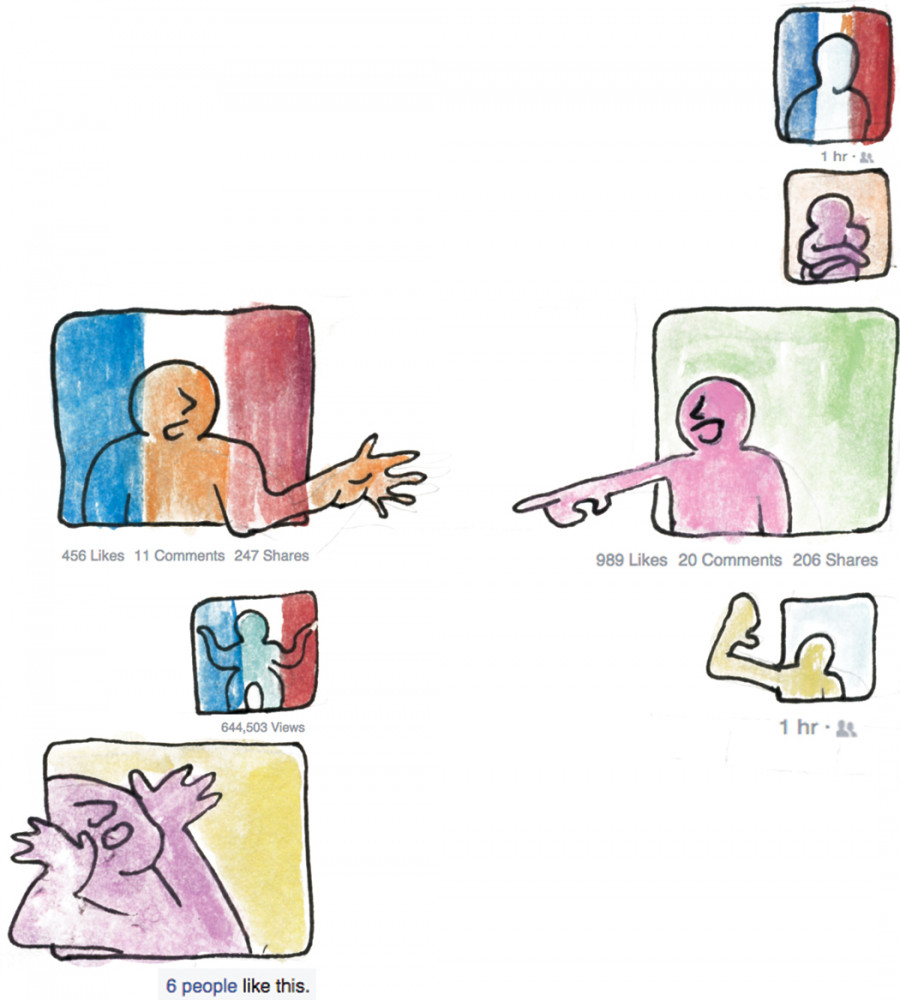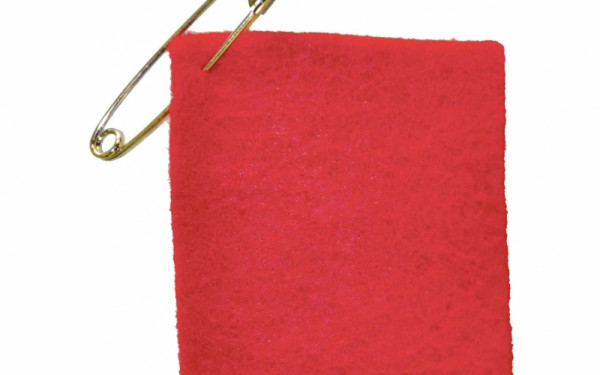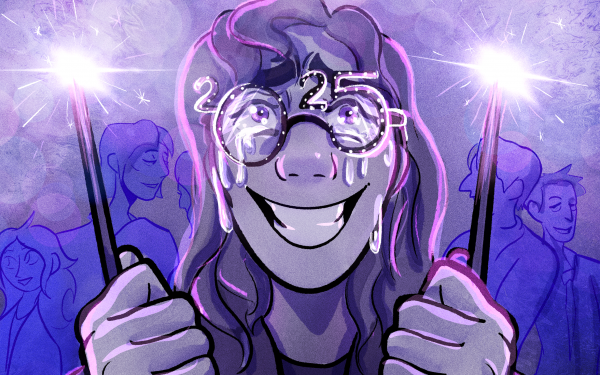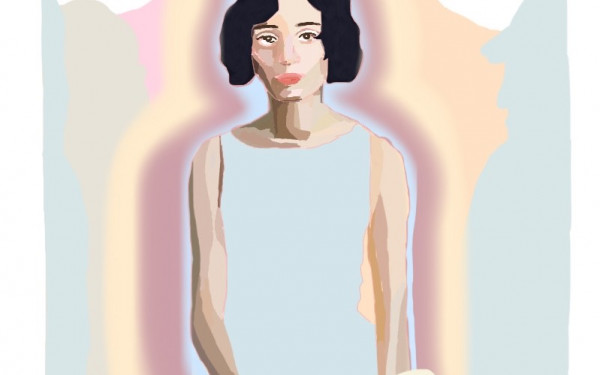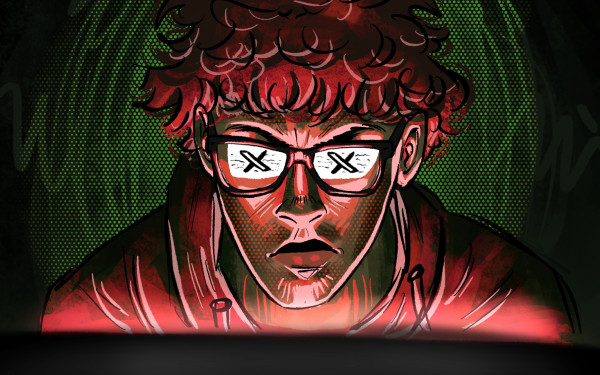Social Media in Times of Crisis
Why Do We Attribute More Meaning to Events with the Most Coverage?
There was a man with arms outstretched, blindfolded, posed almost motionless against the brick of the Simons building. He stood still in the cold; next to him was a quickly written sign that read “Je suis Musulman. Si vous me faites confiance, faites-moi un calin.”
More striking, however, was the semicircle of about 20 people who surrounded him—camera phones poised, filtering his timely and arresting gesture in amaro and mayfair.
I’ve seen him several times since, in Facebook and Instagram posts accompanied by captions like “Stop Islamophobia” and “omg so sad this is what our world has come to.” The irony was needling: in the short time I spent observing, not one voyeur approached to hug him.
Taking recent events into account, this clearly wasn’t the first socio-political post to appear on my newsfeed. On Nov. 13, a series of coordinated terror attacks were launched in Paris, including hostage-taking, suicide bombings, and mass shootings. The attacks killed 130 people, and injured close to 400. The world was left in a collective state of shock, and my social media was rapidly overtaken by a barrage of posts that feigned camaraderie and benevolence. In those first hours, Facebook and Twitter were the best outlets for up-to-the-minute information.
In the hours after that, the tone of the posts shifted.
Profile photos were changed to display the colors of the French flag. Then came the gratuitous “share this if you want world peace” or “1 like = 1 angel sent to Paris” posts. When some people caught a delayed wind of the attacks in Lebanon, there was an increase of Beirut-oriented content.
All of the posts had similar implications—some were more explicit in their perturbation: how could we be so ignorant? How could we place so much importance on Paris when many people also died in Beirut? What about Syria? What about the refugees? What about the Syrian boy crying over his dead siblings? You play for the wrong side. Your opinion is wrong. Allow me to emphasize what I think, what I have to say.
And so it spiraled, at a breakneck pace, into a platform for posts with a decrease in relevance and an increase in virtual discord.
We have been conditioned to immediately attribute importance to the events that receive the most social media coverage. It can be argued that the problem lies within the news agencies that angle their coverage towards novelty—towards issues, like Paris, that carry irrefutable shock-value. However, when considering social media, it needs to be argued that we are in the midst of an audience problem.
Times of crisis should translate to times of unity and social/political communion.
Social media lends itself to latent forms of narcissism and actually promotes petty forms of conflict that trivialize and mock the struggle of the grief-stricken parties. In times of crisis, it is not an outlet that promotes solidarity and a collective sense of grief. It is an agenda-pushing, self-aggrandizing medium that inherently pushes us to antagonize each other.
Through applications like Facebook, Twitter, and Instagram, we have been conditioned to put precedence on the value of “I”: how I look, how I sound, how other people perceive me. We assign social capital to those who attain the most likes, comments and shares.
This is where a form of contention sets in. Times of crisis should translate to times of unity and social/political communion. But like the photo of the Muslim man on Ste. Catherine St., everyone is hard-pressed to show that they are aware of and impacted by the issue, albeit superficially and without justification by action.
The way I see it, the profile picture change was more of a protection than a statement—without it, anyone was privy to criticism about self-involvement. With it, even the most unsuspecting Facebook user became part of this inevitable social media pissing contest.
Admittedly, there is some function to social media in times of crisis. Plugins like the “I’m safe” feature allow users in the affected areas to notify family and friends of their safety. Even then, Facebook executives had to caution users against using the feature needlessly—any number of us can attest to seeing North Americans click “I’m safe” during a crisis overseas, in either a smart-ass gesture or out of pure curiosity. Even when social media has a utilitarian function—crisis management—there are some people who put precedence on their own presence, their own statements.
The reactions I witnessed among both peers and strangers stirred me.
As a proponent of social media, I know it can render some pretty questionable content. Even though there’s no concrete expectation of how people should react, I didn’t expect an audience so ready to accept likes just for filtering a profile picture, or to so readily condemn one another for not focusing on the “right” issues.
I did not change my profile picture to the requisite bleu-blanc-rouge; I refuse to publicly place a premium on one group’s suffering over another. I hugged the Muslim man. I refused to let anyone photograph it. My grief, my own private vigil—for both Paris and the agonizing state of our world—is not for anyone’s consumption or commentary.

